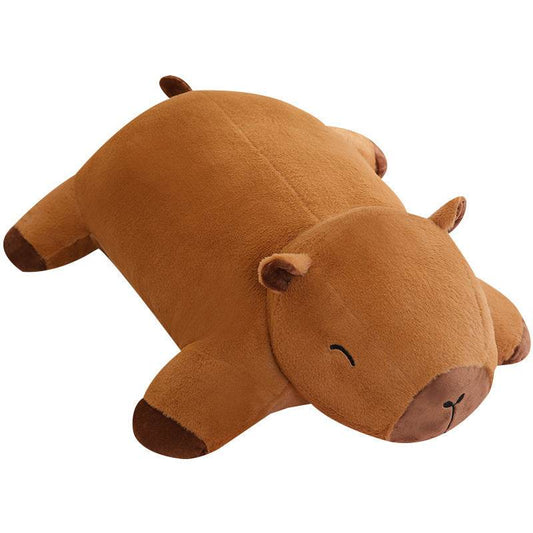Why Are Kids Obsessed With Plushies and Stuffed Animals
In a world filled with hustle and bustle, stress is a constant companion, even for the youngest members of our society—children. While the causes of stress may differ between adults and children, the need for effective stress relief remains universal. Surprisingly, one of the most potent stress reducers for children can be found right in their bedrooms: stuffed animals. Beyond their cuddly and cute exteriors, stuffed animals have been shown to have real-life science-backed benefits when it comes to stress reduction in children. Let's delve into the fascinating world of stuffed animals and their impact on children's well-being.The Comforting Power of Stuffed Animals
Stuffed animals are more than just toys; they are companions that offer comfort and a sense of security to children. Here's how they work their magic:1. Oxytocin Release: When children hug or cuddle their stuffed animals, it triggers the release of oxytocin, often referred to as the "love hormone" or "cuddle hormone." This hormone is associated with bonding and stress reduction, promoting feelings of comfort and emotional well-being.
2. Emotional Support: Stuffed animals provide a non-judgmental presence for children to confide in. Whether it's sharing secrets or talking about their fears and worries, plush companions offer a safe space for emotional expression.
3. Sleep Aid: The familiar presence of a stuffed animal can ease bedtime anxiety and promote better sleep quality. The comfort they provide helps children relax and feel secure, reducing nighttime restlessness.
4. Coping Mechanism: Stuffed animals can serve as a coping mechanism for children facing challenging situations or transitions, such as moving to a new home, starting school, or dealing with separation anxiety.
5. Imaginative Play: Engaging in imaginative play with stuffed animals allows children to explore their feelings and experiences in a creative and non-threatening way. It encourages problem-solving, emotional intelligence, and self-expression.
Science-Backed Benefits
Numerous studies have explored the impact of stuffed animals on children's stress levels and emotional well-being, producing compelling evidence:1. Reduced Cortisol Levels: Cortisol is a hormone associated with stress. Research has shown that interactions with stuffed animals can lead to a decrease in cortisol levels in children, indicating a reduction in stress.
2. Enhanced Social and Emotional Skills: Engaging in play with stuffed animals can improve a child's social and emotional development. It encourages empathy, communication, and the ability to understand and express emotions.
3. Improved Focus and Concentration: Stuffed animals can serve as calming tools, helping children regulate their emotions and improve their ability to focus and concentrate on tasks.
4. Comfort During Medical Procedures: Stuffed animals are often used in healthcare settings to provide comfort and distraction for children undergoing medical procedures, reducing their anxiety and distress.
Practical Tips for Maximizing Benefits
To harness the stress-reducing potential of stuffed animals effectively, consider these practical tips:1. Encourage Bonding: Encourage your child to form a strong bond with their stuffed animals by allowing them to choose their plush companions and giving them names and personalities.
2. Bedtime Ritual: Incorporate stuffed animals into your child's bedtime routine, creating a comforting and familiar ritual that promotes relaxation and better sleep.
3. Open Communication: Encourage your child to share their thoughts and feelings with their plush companions. This open form of communication can be therapeutic and comforting.
4. Respect Their Choices: Understand that different children may form attachments to different stuffed animals. Respect their choices and the significance of each plush friend.
In conclusion, stuffed animals are not mere playthings; they are powerful tools for stress reduction and emotional support for children. The science behind their comforting effects highlights their significance in promoting the well-being of young minds. So, the next time you see your child hugging their favorite plushie, know that it's not just a toy; it's a source of comfort, security, and real-life stress relief.
















